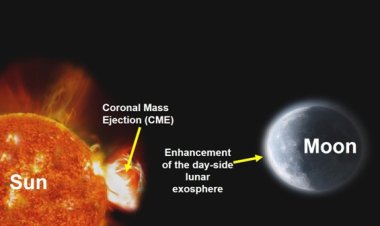Why do some people look older despite being the same age
People from the same eras can tell the difference between ages.

Science is shedding light on this phenomenon, revealing fascinating connections between genetics, lifestyle, and even past generations!
Signs of growth:
At the cellular level, aging results from decreased collagen production, decreased cell repair mechanisms and increased oxidative stress These effects manifest as wrinkles, loss of skin elasticity and changes in hair color . . . .
Genetic predisposition:
Our genes play a key role. Some people acquire genes that reduce the rate of collagen breakdown or resistance to inflammation, making them more susceptible to visible signs of aging.
Lifestyle choices:
Sun exposure, smoking and poor nutrition all accelerate the aging process. UV rays damage collagen, while smoking decreases blood flow to the skin and creates cell-damaging free radicals. A diet deficient in essential nutrients interferes with the body’s repair mechanisms.
Telomere Effects:
Telomeres are protective caps that shorten with each cell division. Short telomeres are associated with cellular aging. Interestingly, research shows that healthy lifestyle choices like exercise and stress management can shorten telomeres.
Beyond Skin Deep:
The "aging clock" extends beyond wrinkles. Factors like muscle mass, bone density, and cognitive function are also influenced by these same mechanisms.
The Mind-Body Connection and Aging:
Chronic stress and poor mental health can significantly impact how we age. Stress hormones like cortisol can break down collagen and contribute to inflammation, accelerating visible signs of aging. Conversely, a positive attitude and strong social connections have been linked to slower cellular aging and improved overall health.
People who manage stress effectively, engage in relaxation techniques, and maintain healthy relationships seem to age more gracefully. This highlights the importance of a holistic approach to well-being, where mental and physical health are interconnected.
Cracking the Code on Aging
New York, NY - A recent study published in Nature Aging sheds light on the reasons why some people seem to age faster than others. Researchers found a combination of genetic and lifestyle factors influencing the visible signs of aging.
The study's lead author, Dr. Amelia Wright, says, "We were surprised to find that genetics played a major role. "However, the good news is that healthy lifestyle choices can significantly counteract these genetic tendencies.
The study highlights the importance of sun protection, a balanced diet and regular exercise for a youthful appearance and overall well-being. Experts believe these findings could pave the way for personalized anti-aging strategies based on individuals’ genetic information and stress-management strategies.






















